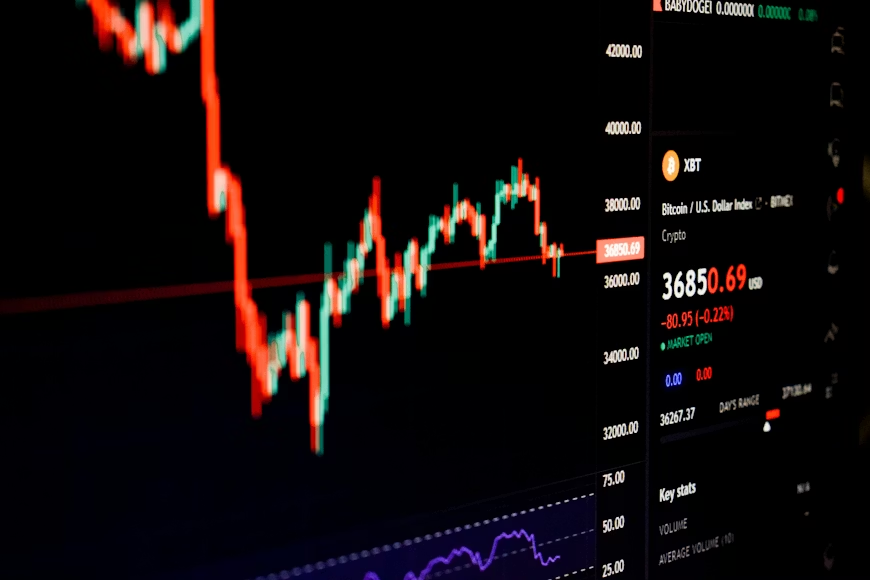ADA Not A Security: Gensler Once Again Getting Ahead of Himself
The recent lawsuit filed by the U.S. Securities and Exchange Commission (SEC) against Binance, its CEO Changpeng Zhao, and Binance U.S. has caused a stir in the crypto community.

The SEC’s Power and the Court’s Authority
The recent lawsuit filed by the U.S. Securities and Exchange Commission (SEC) against Binance, its CEO Changpeng Zhao, and Binance U.S. has caused a stir in the crypto community. The SEC explicitly labeled 12 tokens, including ADA, SOL, MATIC, and MANA, as securities. However, it’s important to note that the SEC’s classification does not have the final say. The determination of whether a token is a security is a matter that is to be decided by a judge in the court system, not by a regulatory agency.
ADA Is Not a Security, But a Commodity
Among the tokens named in the lawsuit, ADA, the native cryptocurrency of the Cardano blockchain, stands out. While the SEC claims it is a security, there is no lawsuit specifically targeting ADA itself, and no legal proceedings have played out in court to determine its status. Many in the crypto community argue that ADA possesses characteristics more akin to a commodity than a security.
ADA serves as a utility token within the Cardano ecosystem, granting holders access to network functionalities and participating in the platform’s governance. Its primary purpose is not to generate profits for holders but to facilitate transactions and secure the blockchain. These characteristics align ADA more closely with commodities like gold or oil, which have inherent value and utility.
Gary Gensler’s Aggressive Stance on Crypto
SEC Chair Gary Gensler has been vocal about his concerns and regulatory approach toward cryptocurrencies. His comments and actions have sparked controversy, with many in the crypto industry feeling that he is overly aggressive in his stance.
By labeling ADA and other tokens as securities without a legal ruling, Gensler’s approach raises questions about the boundaries of the SEC’s authority. The determination of whether a token is a security should be based on a careful examination of its characteristics and purpose, rather than a broad generalization that covers “everything other than Bitcoin.”
Gensler’s position may inadvertently stifle innovation and drive businesses away from the United States. Instead of fostering a supportive environment for crypto and blockchain technologies, his aggressive stance risks leaving the U.S. behind as other countries embrace and harness the potential of this transformative field.
Driving Innovation Abroad: A Concern for the Future
The global landscape of cryptocurrency and blockchain innovation is rapidly evolving. Countries like Switzerland, Singapore, and the United Arab Emirates have embraced crypto-friendly regulations, fostering an environment that attracts entrepreneurs, businesses, and investments in the crypto space.
With Gensler’s approach potentially hampering innovation and driving businesses away, the U.S. risks falling behind in this innovative new field that has the potential to reshape finance and numerous other industries. Regulators must strike a balance between protecting investors and allowing technological advancement, creating an environment where innovation can thrive without stifling it through excessive regulations.
As the crypto community awaits the resolution of the SEC’s lawsuit against Binance, it is essential to recognize the importance of fair and impartial legal proceedings in determining the status of tokens like ADA. Only through a thorough examination in the court system can a final determination be made, ensuring clarity and stability for the crypto industry and its participants.
Ripple Lawsuit Win: Setting a Precedent and Potential Impact on the SEC Lawsuit
Amidst the ongoing legal battles in the crypto industry, another significant case looms large — the lawsuit between the SEC and Ripple Labs. Ripple, the company behind the XRP cryptocurrency, has been locked in a legal dispute with the SEC over whether XRP should be classified as a security. The outcome of this lawsuit could have a profound impact on the SEC’s broader crackdown on tokens and potentially influence the fate of the recent lawsuit against Binance.
The Ripple lawsuit holds the potential to set a precedent in determining the regulatory status of cryptocurrencies. Ripple has argued vehemently that XRP should not be deemed a security but rather a digital asset functioning similarly to Bitcoin or Ethereum. If the court rules in favor of Ripple, it could establish a legal framework that distinguishes between cryptocurrencies and securities more clearly, providing much-needed clarity for the entire industry.
This impending ruling could have a ripple effect (no pun intended) on the ongoing SEC lawsuit against Binance and the 12 tokens labeled as securities. A favorable outcome for Ripple could cast doubt on the SEC’s approach in categorizing tokens without proper legal proceedings. If the court determines that XRP is not a security, it could challenge the SEC’s classification of other tokens, including ADA, SOL, MATIC, MANA, and others mentioned in the Binance lawsuit.
The potential dismissal of the SEC’s case against Ripple could further weaken the SEC’s position in its lawsuit against Binance. It may provide the defendants in the Binance lawsuit with a strong argument that the SEC’s categorization of tokens as securities lack solid legal grounding. The courts could be compelled to reconsider the SEC’s claims against Binance and potentially dismiss the lawsuit altogether.
Such an outcome would not only be a significant victory for Binance but also raise critical questions about the SEC’s authority and decision-making process. It would highlight the importance of relying on judicial oversight and due process to determine the regulatory status of cryptocurrencies, ensuring fairness, consistency, and legal clarity in the industry.
As the crypto community awaits the Ripple lawsuit verdict, it is an important milestone that may shape the future of crypto regulation. The outcome has the potential to reverberate beyond Ripple and set a precedent for how cryptocurrencies are evaluated under securities laws. Whatever the result, it is clear that the legal battles unfolding in the crypto space will have far-reaching implications for the industry’s future and regulatory landscape.
Delegate Your Voting Power to FEED DRep in Cardano Governance.
DRep ID: drep12ukt4ctzmtf6l5rj76cddgf3dvuy0lfz7uky08jfvgr9ugaapz4 | We are driven to register as a DRep by our deep dedication to the Cardano ecosystem and our aspiration to take an active role in its development, ensuring that its progress stays true to the principles of decentralization, security, and community empowerment.DELEGATE VOTING POWER!








